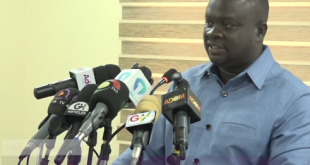Finance Minister Dr. Cassiel Ato Forson has confirmed that the Deloitte audit report on the Development Bank Ghana (DBG) will be formally submitted to the Attorney General’s Department for potential legal action. The move, he said, marks a decisive step toward restoring public trust and institutional integrity at the state-backed lender.
The decision follows consultations with major development partners — including the World Bank, African Development Bank (AfDB), Germany’s KfW, and the European Investment Bank (EIB) — all of whom have endorsed the government’s position that accountability at DBG is “non-negotiable.”
“A new dawn is beginning for DBG,” Dr. Forson stated, emphasizing that swift reforms are essential to restore the Bank’s credibility. “Individuals found culpable will face the consequences.”
Background: Allegations and Audit
Concerns about governance at DBG have persisted since 2024, when allegations of financial mismanagement first surfaced. Civil society leader Bright Simons of IMANI Africa claimed that over GH¢400 million had been lost through improper contracting and procurement-related infractions.
While DBG has denied all allegations, insisting that no development partner funds were misused, the World Bank and other institutions have begun conducting internal reviews and called for external audits. The Deloitte audit — now completed — is the government’s clearest response yet to those calls for transparency and reform.
Key Actions: Leadership Changes and Legal Pathways
With the audit findings in hand, the government is moving quickly to reposition DBG:
- A new Chief Executive Officer, selected through a competitive process, will be announced on Monday.
- A reconstituted Board of Directors is expected to be in place by the end of October 2025.
Albert Essien, Interim Board Chair, has pledged transparency and prudent governance, a stance that has been welcomed by development partners.
“We are committed to restoring DBG’s focus on financing Ghana’s economic transformation,” Essien said.
Development Partners Watching Closely
With millions of dollars in funding at stake, development partners have stressed the importance of robust oversight at DBG, which was established to provide long-term financing to key sectors such as agriculture, manufacturing, and infrastructure.
The latest developments signal a major shift in how the Bank is managed and perceived — both domestically and internationally.
“This is not just about responding to past failings. It’s about safeguarding the future of Ghana’s development finance ecosystem,” said a senior official involved in the consultations.
As legal processes begin and new leadership takes charge, all eyes will be on DBG’s next steps — and whether this marks a turning point in public financial management in Ghana.
 Adoa News Adoa News
Adoa News Adoa News




